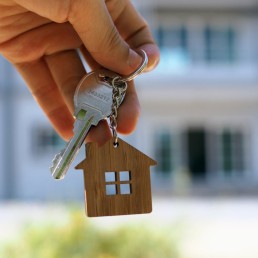| Posted in First Time Home Buyers, Homebuying Tips & Trends, Mortgage News
If you plan to purchase a home, you have probably started to research the best mortgage options to make the most of your money. When looking at your home purchase, you have to consider both the actual cost of the home as well as your financing. Unless you are purchasing a home outright, you will probably have to take out a loan.
Your interest rate and any financing costs can make your monthly payments very different. A higher interest rate means that you pay your lender more to borrow the money used to purchase the home. Over the life of the loan, you will pay that percentage of the overall amount of money that you borrowed in addition to the principal amount used to purchase the home.
Understanding Your Monthly Mortgage Payments
Most mortgages are for 15 or 30 years. When you finalize your mortgage paperwork with your lender, they divide up the interest and principal amounts into monthly payments. They add in the cost of taxes and insurance. This total amount is your monthly mortgage payment.
Where is My Money Going?
The early payments on your mortgage mostly go toward interest. Even though your monthly payment does not change beyond minor adjustments to account for changes in your insurance coverage or taxes. As you continue to pay down your mortgage, a greater percentage of your monthly payment will go toward the principal amount.
Can I Pay Extra?
You can make extra payments in most cases without a penalty. Making these early, especially if you designate them to go just toward the principal balance, can cut down on the interest that you pay and the amount of time that it takes to pay off your mortgage. This is a great strategy that can result in your owning your home free and clean, without a mortgage, sooner. It can also save you money!





